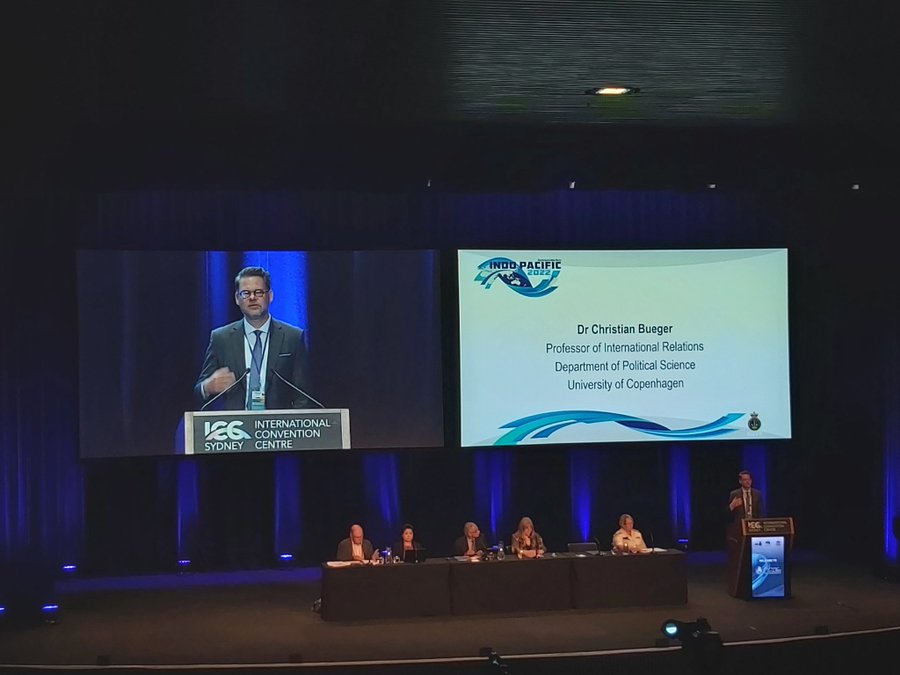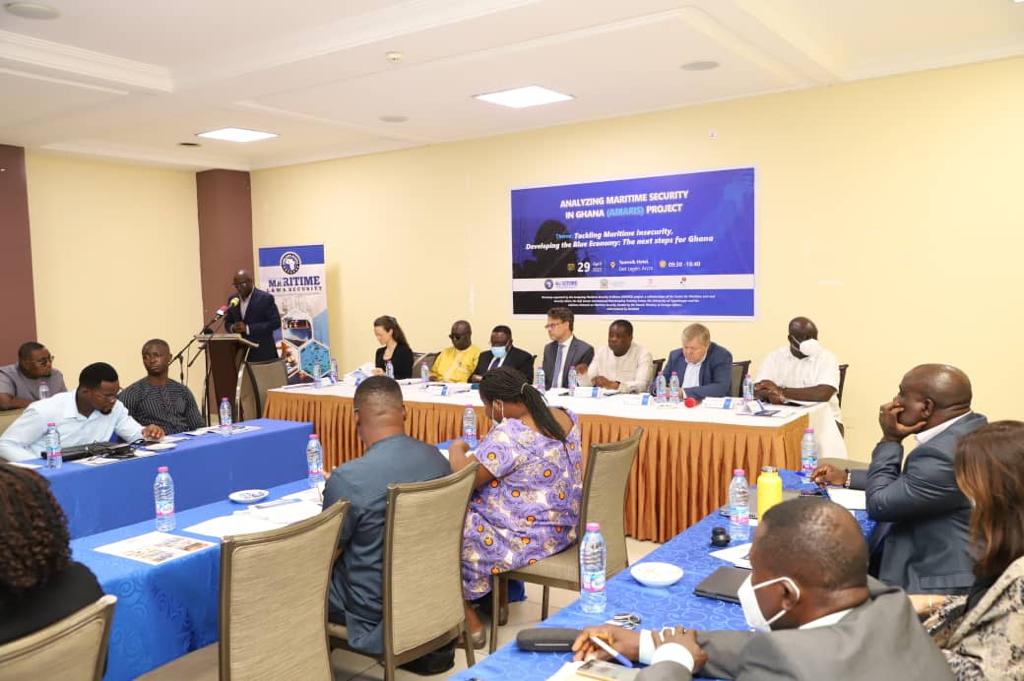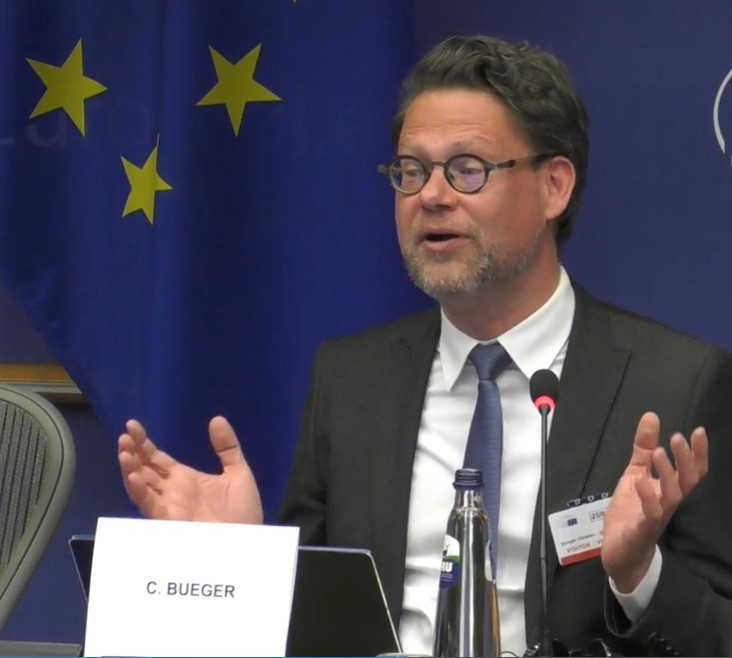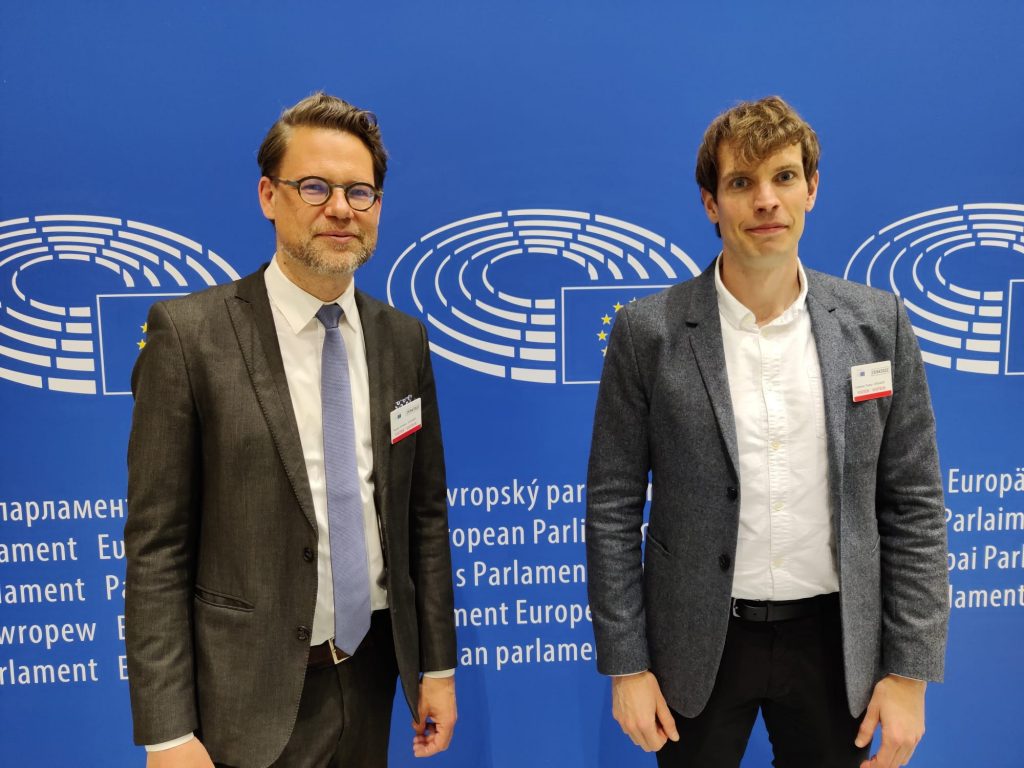On the 16.5. I had the pleasure to give a talk at the Institute for Political Science, Technical University Darmstadt, Germany. In my talking I was introducing the key arguments of a work in progress article written with Scott Edwards (Bristol) and Maren Hofius (Hamburg). The article revisits the community of practice framework as an approach to global ordering. We argue that the interaction between communities of practice in global politics should receive more focus. The discussion revolved around the benefits of the communities of practice approach compared to other frameworks for studying ordering, but also how to actually theorize with and from practices.
Category Archives: Events and Presentations
New podcast on maritime security, militarization and the Western Indian Ocean
In a new episode of Sea Control podcast, Alexia Bouallagui, Jan Stockbruegger and I discuss the current situation in the Western Indian Ocean. Drawing on our recent article published in African Security Review, we discuss what other threats than piracy now prevail in the region. We also investigate why the surge of naval activity and strategic competition in the region is a worrying yet underappreciated trend and confronts the Western Indian Ocean with a dilemma. The region relies on external military actors to protect vital shipping lanes, but the presence of these actors also risks importing geopolitical tensions that could undermine regional maritime stability.
Keynote address at Seapower Conference in Australia
The Australian navy is hosting the Indo Pacific Seapower 2022 conference from the 10th to 14th of May, and I am delighted to attend. I will be giving one of the keynote addresses. In my talk I revisit the evolution of maritime security thinking. I argue that there are different waves of maritime security and speculate about whether there is a new wave on the horizon. The recording of the presentation is available here.

Talk at University of Bologna
On May 4th I am giving a guest lecture at the Department of Political Science at the University of Bologna. In the lecture I will review the European Union’s approach to maritime security based on a forthcoming paper co-authored with Tim Edmunds. The paper draws on our research on maritime security strategy as well as a talk on the EU’s maritime security strategy I gave last year at the EU Military Committee. Further information and location here.
Maritime Security in Ghana. The next steps
On April 29th we hosted a gathering of the maritime security community in Ghana to discuss the findings from our AMARIS research project. The summary of the event, written by Felix Mallin and I, is now available here.

How to improve maritime security in the Gulf of Guinea
On April 27 and 28 two key events of our collective research project AMARIS (Analyzing Maritime Security in Ghana) will take place in Accra. On day one we will have an internal meeting and review the set of current drafts for academic articles and how to drive them to publication. Papers, include a discussion of the problem of inter-agency coordination, the effect of maritime security strategies and on the impact that the concept of maritime security had for governance and organization of the maritime sector in Ghana.
On day two, the AMARIS team will present our key policy insights to the major stakeholders and agencies in Ghana. We will investigate how the maritime threat landscape has been evolving, what the key hurdles are in creating effective maritime security governance, and what best practices can ensure the effective delivery of capacity building. The event is hosted by the Center for Maritime Law and Security Africa one of the member institutions of AMARIS.
Recording of presentation on cable security at European Parliament
The recording of our recent presentation at the Sub-Committe on Security and Defense of the European Parliament is now available to view. In the presentation we discuss how the security of the European subsea data cable infrastructure — critical for the European digital economy. The recording is available here.

Presentations at EU in Brussels
From the 25 to 26th of April, Tobias Liebetrau and I will be visiting Brussels to present the key recommendations of our recently completed study on the security of subsea data cable infrastructures in Europe. We will be giving a presentation to the Security and Defense Committee of the European Parliament that commissioned the study.
We will also meet with the team from DG Mare and the External Action service that is drafting the update of the EU Maritime Security Strategy. We will present the results of the study on cables and also the key take away points of another forthcoming study on the EU’s maritime security policy (with Tim Edmunds).

EU – India Seminar on Maritime Security
The Indian National Maritime Foundation and the EU project ESIWA (Enhancing Security Cooperation In and With Asia) held an online EU-India seminar on maritime security and UNCLOS on April 11th. The key question addressed was how India and the EU can cooperate better to provide maritime security in the Indo-Pacific. I had the pleasure to chair the second session of the event.
Webinar on ‘Fish Wars and Blue Conflicts’
What is the relation of fish and security? On the 6th of April I had the pleasure to contribute as a discussant to a webinar that explored that important question. The event was organized by the Institute for Oceans and Fisheries of the University of British Columbia.